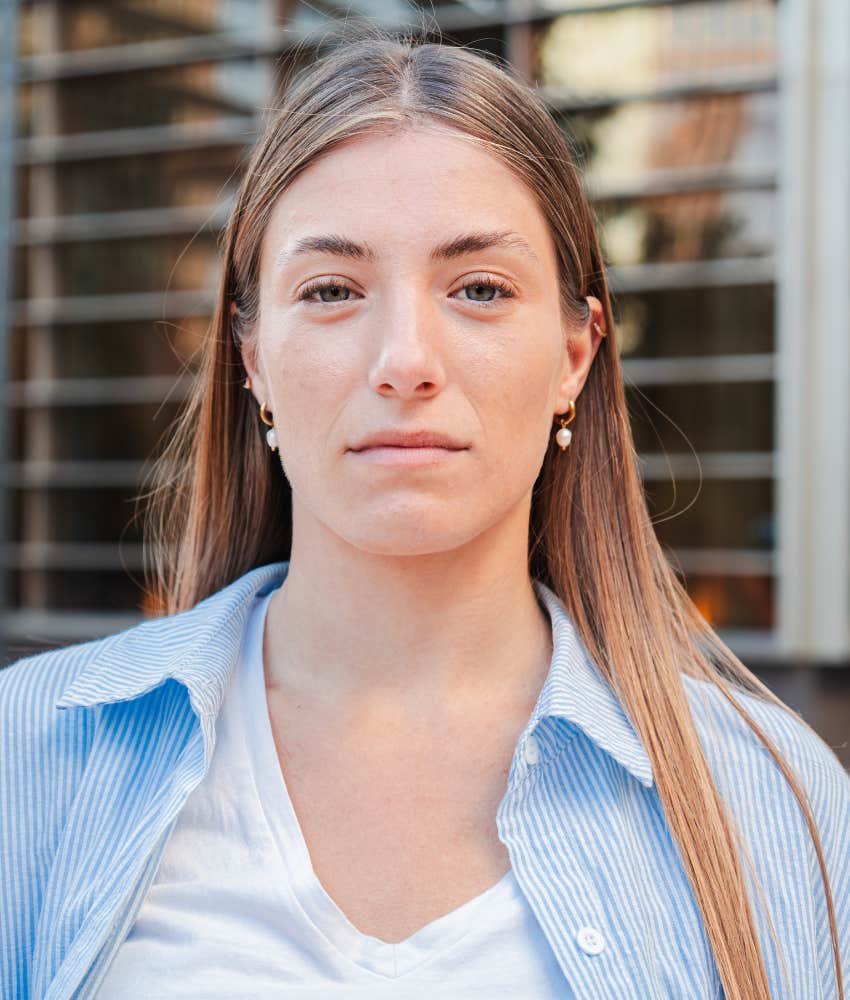7 Things Smart People Learn From Their Worst Relationships That Others Are Doomed To Repeat
The right move forward is key to future survival.
 Daniil Lebedev | Unsplash
Daniil Lebedev | Unsplash The beginning of every relationship is magical, full of hopes and dreams for the future. When a relationship goes bad, which most of them do, dreams are dashed, and life becomes miserable. It doesn't have to be this way.
If you leave a bad relationship and hope all other relationships after will magically be better, you cause yourself more damage through disillusionment. The good news? Once you finally escape a bad relationship, there is a bright side. You learn from your worst mistakes. You learn what you don't want.
Seven things smart people learn from their worst relationships:
1. To never ignore relationship red flags
According to Dr. Lawrence Josephs, women are pros at ignoring symptoms of toxic relationships because they are, first and foremost, fixers. They believe anything wrong in their relationship can be fixed with a little bit of love, acceptance, and time. As a result, they stay in a relationship, truly believing that if they do, things will change.
As you move into a new relationship, you commit to never trying to fix your person. If you see red flags in someone else’s behavior, hit the road immediately. After all, no amount of love or patience can fix someone else’s behavior. They need to want to change to do so.
2. That they are not their attachment style
 Yuri A PeopleImages | Shutterstock
Yuri A PeopleImages | Shutterstock
Many women truly don’t believe they are worthy of a healthy love. The reasons are often the result of an unhealthy attachment style.
According to Dr Amy Marschall, many women who don’t believe they are worthy of love don't because of attachment issues. Most often, these attachment issues are the result of an unhealthy parent/child dynamic. They can also be the result of past traumatic relationships.
As you move out of this relationship, you recognize you are worthy of love. Yes, you might have an attachment style that makes this difficult, but understanding your attachment style and working to build a healthy relationship in spite of it will help you move on.
3. To never let someone else have power over them
For every relationship, the power dynamic must be mostly equal. Each person has a say in what happens in the relationship, and each person is comfortable with the decisions made. Unfortunately, when people are caught up in toxic relationships, they don’t see that their partner might have an unhealthy power over them.
As you move forward, you pay attention to the power dynamic in your relationship. Never let another person have destructive power over you. Don’t tell yourself you aren’t powerful. You have made it this far in your life, much of it under your power!
4. How to identify an unhealthy relationship
So many of my clients who are trying to escape from a toxic relationship say one of the reasons they stay, one of the reasons they still believe there is love in the relationship, is because of how great the sex is. After all, how can a relationship be a toxic one when they are still so physically connected to their partner?
According to therapist Duygu Balan, LPCC, people who are in toxic relationships have an unhealthy attachment to sex. They love the thrill of make-up sex. They use sex as a replacement for love. They use sex as a way to tie themselves to another person. Sex can indicate security when it comes from a place of love, but in a toxic relationship, it is just a mask for the symptoms.
Going forward, recognize that great sex is not a substitute for love.
5. To never make excuses about someone else’s behavior
 Jose Calsina | Shutterstock
Jose Calsina | Shutterstock
Do you make excuses for your partner’s behavior? Do you say they are impatient because they have been working so hard? Do you say their anger towards you is your fault? Do you say they are a good person, even when they are abusive?
People who feel the need to repeatedly excuse their partner’s behaviors are often in a toxic relationship and are ignoring the red flags. Going forward, notice the red flags and do not excuse them away.
6. To love themselves without looking elsewhere to fill their need
It's almost an epidemic in our country - women who just don’t love themselves and who look to others to “complete them.” Society, and social media especially, has set us women up to fail with its high expectations that are impossible to reach; impossible standards of beauty and success pervade our everyday lives.
You must take some time to learn to love yourself; to accept yourself as the amazing woman you are, even if the person you see in the mirror looks nothing like the filtered influencers you see online. Because if you can love yourself, you won’t need another person to “complete you” and won’t stay in a toxic relationship hoping for it to happen.
7. That life will never go back to the way it was in the beginning
This is probably the number one thing I hear from clients who are struggling to escape from a toxic relationship: if they just love their partner enough, things will go back to the way they were in the beginning, when their partner was lovely and kind and they had hopes for the future.
Unfortunately, even in healthy relationships, things will never go back to the way they were in the beginning. The dopamine our bodies produce when we are falling in love is different from the dopamine released in a healthy, committed relationship. It produces a calmer, more settled feeling, not as intense as the initial passion. In a toxic relationship, the dopamine connection might be gone forever.
Even if your relationship becomes a healthy one, it will never go back to the way it was in the beginning, and don’t set the past as a standard you are looking for in a happy relationship.
You can learn lessons from your toxic relationship and move forward healthily because it is key to survival. Keep up the good work. You can do it!
Mitzi Bockmann is a NYC-based Certified Life Coach who works with individuals who strive to heal their toxic relationships so they can have their happily ever after. Mitzi's bylines have appeared in The Good Men Project, MSN, PopSugar, Prevention, Huffington Post, Psych Central, among many others.

